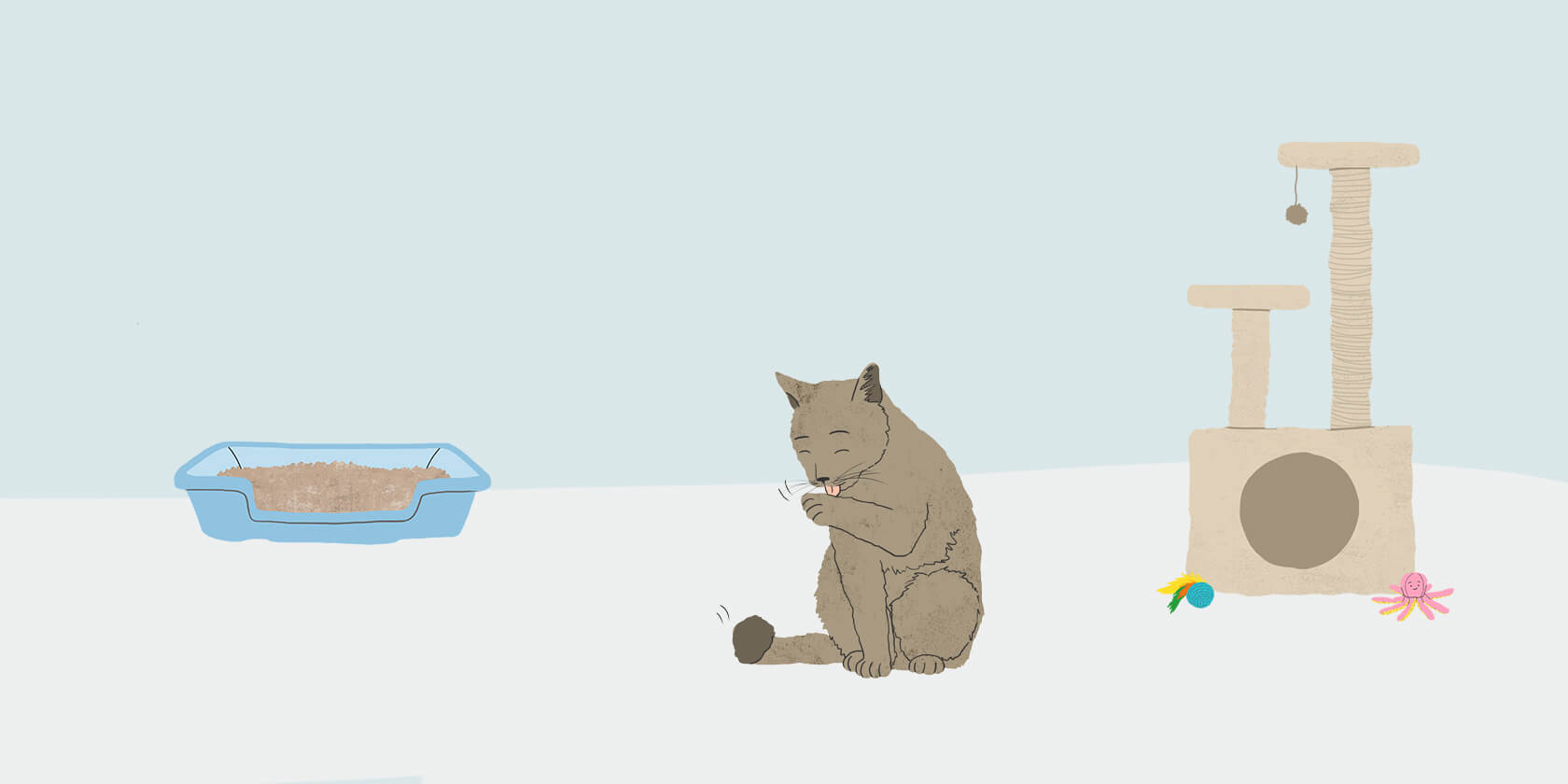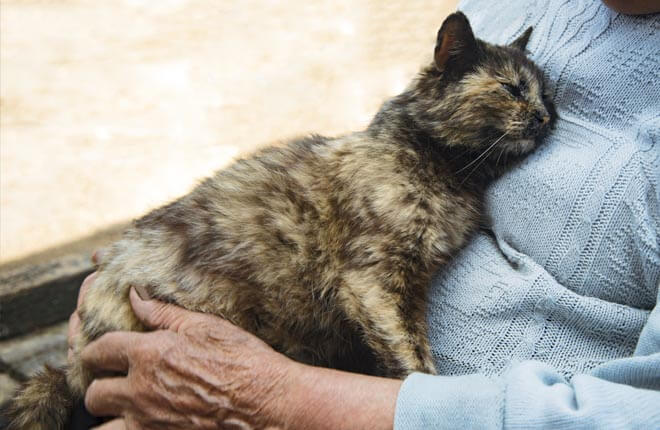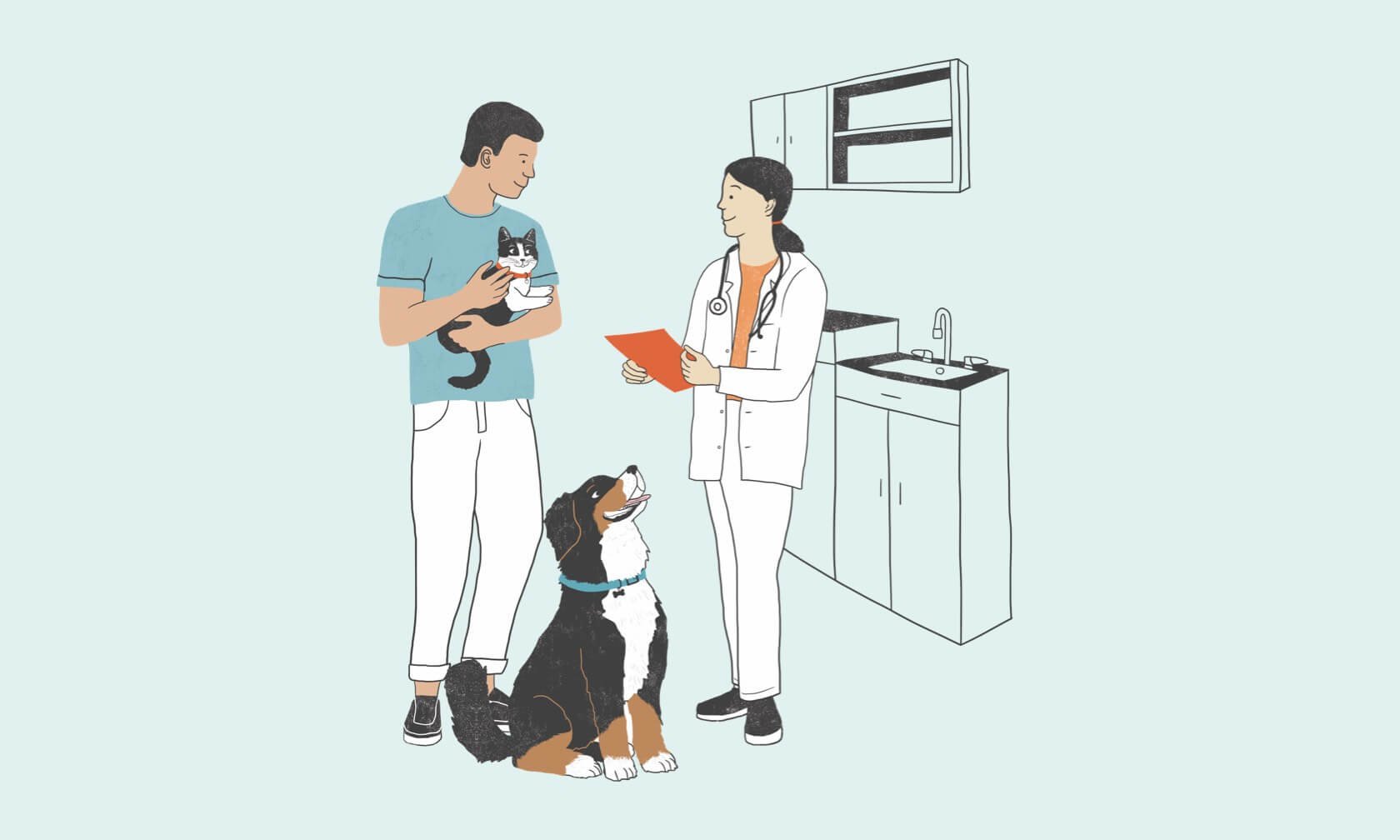For humans, a little drool on our pillow might mean a deep sleep. And many of us are familiar with slobbery dog kisses. But what does it mean if your cat is drooling? Is it normal? Do happy cats drool? Can it be cause for alarm? The simple answer is yes to all of these questions. Large amounts of saliva can be produced by your cat for all kinds of reasons, so knowing when you need to be concerned (and when you don’t) is essential for any cat owner.

Medical Reasons Your Cat May Be Drooling
When cats have mouth issues, especially those that cause irritation or pain, they can drool. A cat’s body, like our own, produces extra saliva to help soothe the mouth and throat and remove possible irritants. Here are a few medical problems that may be causing your cat to drool:
Dental Problems
If your cat has dental disease (more specifically, periodontal disease) and/or disease affecting their gums, tongue, or the roof of their mouth, it can lead to drooling and even significant pain. It’s important to note that up to 80% of cats over the age of 3 are affected by dental disease[1].
Oral Injury
You may see drooling if your cat has some sort of mouth trauma like a cut or puncture.
Foreign Object
Drooling can be triggered by something as simple as a small piece of plant debris getting stuck in your cat’s teeth or gums. But the situation can also be much more serious if a sewing needle (or even sewing thread) becomes lodged in their throat, which happens more often than you’d think. In these cases, the drooling may be accompanied by difficulty swallowing and pawing at their face.
Nausea
Cats can become nauseated from a variety of illnesses, like gastrointestinal upset, liver or kidney disease, as well as ingesting toxins. Anything that can cause nausea can make your cat drool. But it is also important to keep in mind that nausea does not always cause drooling and signs of decreased food intake or interest, vomiting, or lethargy should prompt a trip to your veterinarian.
Problems Swallowing
When cats have difficulty swallowing for reasons like oral disease, nerve problems, injury, or swelling, they will drool.
Oral Tumor
While less common, cats can develop cancerous tumors in their oral cavity anywhere from the tip of their tongue to the back of the throat. In these cases, drooling can result from irritation, pain, or difficulty swallowing.
You may not witness your cat being injured or be able to see anything unusual inside their mouth – and do not risk getting bitten by doing an oral exam yourself. But, if you notice that your cat is suddenly drooling, especially with the presence of blood and/or an odor, you should take them to your veterinarian for evaluation.
Other Reasons Your Cat May Be Drooling
It’s not only health issues and injuries that cause some cats to drool – there can be psychological and behavioral reasons, too.
Anticipating a Bad Taste
One cause of excessive drooling is when a cat receives or expects to receive food or medication with an unpleasant taste. The body tries to prepare itself by producing more saliva and is often accompanied by the cat fleeing or resisting ingestion.
Anxiety
In some cases, extreme stress, fear, and anxiety can make a cat drool. While a situation like a car ride or a new animal in the house might not seem stressful to you, your cat may experience overwhelming. The surge of adrenaline can sometimes lead to nausea and salivation, much like it can in humans.
Do Cats Drool When They’re Happy?
Yes, some do! In these cats, positive and pleasurable stimulation will make them drool. It’s often accompanied by purring, rolling, and face rubbing against the object of their affection, like a comfy blanket or your face. You may be wondering if there is a scientific explanation for this response to happiness, but it remains a bit of a mystery! The good news is that this behavior is perfectly normal. And if your cat starts out as a “happy drooler,” they will likely continue to be for life.
You may notice that your cat, like many of us, drools when sleeping. This just indicates a relaxed and happy cat. Some cats engage in “wool sucking,” meaning they suck on fabric, much like they suckled from their mother as kittens, and may drool a bit in the process. Catnip can also cause a little drool.
As always, knowing what’s normal for your cat is the best way to keep on top of changes in their behavior that can alert you to potential health issues. If they suddenly start drooling for no apparent reason, the drooling continues longer than usual, or you’re seeing other signs or changes in behavior, it’s a good idea to speak with your veterinarian.
ZPC-01379R1
- Wiggs RB, Lobprise HB. Periodontology. In: Veterinary Dentistry: Principals and Practice. Philadelphia: Lippencott-Raven; 1997:186-231



